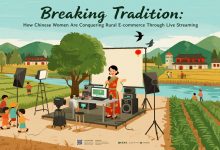A Father’s Day reflection that hit me right in the feels
I never truly understood my dad until I was well into my twenties.
Growing up, he was just… there. A constant presence with calloused hands and a perpetually tired smile. Middle school education, blue-collar to the core, but with an unexpected love for history books. He’d spend evenings after 12-hour shifts reading about the Civil War and Revolutionary battles, then retell those stories to me with more enthusiasm than I’d ever seen from my history teachers.
When friends would meet him, they’d always look surprised. “Your dad really knows his stuff,” they’d say, impressed. Like they couldn’t believe a construction worker could be knowledgeable about anything.
If only they knew his whole story.
The Man of Many Jobs
Dad tried his hand at everything. According to Grandma, he attempted entrepreneurship as a teenager—first selling peaches at a roadside stand (ate more than he sold), then trying to sell fish when a nearby dam broke and flooded the market with free fish. Not exactly a business prodigy.
After failing at small business, he worked a year with Grandpa on their small farm in rural Kentucky. Then after marrying Mom, he headed to West Virginia to work in the coal mines with Uncle Bob. The pay was decent until the industry tanked. He came home with a few thousand dollars and not much else.
There was always this restlessness in him. He couldn’t stay put. Soon after returning, he left for Chicago with my uncle to work in a factory. That didn’t last either. He came back with a brand new TV and DVD player—luxuries we’d never had before.
I remember him hoisting me onto his shoulders, taking me to the corner store, and buying all the snacks I wanted. I felt like the richest kid in the world.
“What else do you want?” he asked.
“I want you to stay,” I told him. “I want my dad.”
And he did. From then on, he stayed in our small town, even taking me along whenever he drove into the next county.
The Good Years
Dad finally settled down and started dairy farming. Every morning, I’d wake up to an empty bed and see him through the window, squatting beside our cows, milking them before dawn. The cows would look at me with their big eyes, contentedly chewing hay, enjoying Dad and Mom’s care.
My little brother Rich was born in 2000, right when the dairy business hit a golden era. Three major dairy companies built processing plants in our county, competing fiercely for milk. Prices rose from 50 cents to a dollar, then a dollar fifty per gallon. When Horizon Organic built their plant, prices peaked at $1.80.
Our farm grew from one cow to five, then to ten. Dad worked harder than ever—up before dawn, to bed well after dark—but I never heard him complain. His face always had this glow about it, making him look younger and more energetic than other men his age.
That year, I got my first real new clothes. On New Year’s Day, I jumped around showing them off, spinning in circles in front of my parents. Dad lifted me onto his shoulders again and promised, “There’ll be many more new clothes coming.”
He was right. Our cows were productive, bringing in $8,000-10,000 in pure profit each month. We bought farm equipment, put red tiles on our roof, replaced our fence with brick, and became the first family in the village with a motorcycle—a big Golden Warrior 125cc that Dad rode like the wind.
The happiest moments of my childhood were sitting behind Dad on that motorcycle, arms wrapped around his solid waist, flying down country roads under blue skies.
When Everything Crashed
Good times flew by faster than Dad’s motorcycle. In 2008, the dairy industry collapsed after a major contamination scandal. Suddenly farmers had milk but nowhere to sell it. Eventually, the market loosened slightly, but prices crashed to 50 cents.
Dad’s smile disappeared. He’d toss and turn all night, unable to sleep. Mom sighed constantly. The atmosphere at home became so heavy I could barely breathe.
As the scandal intensified, local dairy processing plants suffered devastating blows. Only Horizon stayed open, but they were dumping most of the milk they bought into meadows just to help farmers—imagine fields soaked with milk. The grass grew wild that year, and many pigs drowned in the soggy fields.
I remember when Grandma’s pig went missing. Dad rode his motorcycle across the pastures searching for it. He finally found it in a depression in the ground, drinking from a massive puddle of dumped milk.
Dad parked his motorcycle, sat down on the grass, and stared at the milk-white puddle, his eyes glistening. He lit a cigarette, took a deep drag, and before I knew it, tears were streaming down his face. It was the first time I’d ever seen him cry. As a fifteen-year-old, I didn’t understand the adult world or why he was crying when we’d found the pig.
It wasn’t until years later, when magazines rejected articles I’d poured my heart into writing, that I understood that kind of pain. And I imagine Dad’s pain was a thousand times worse than mine.
Breaking Point
By 2010, I was drifting through middle school, learning more about drinking beer than academics. Once a week, I’d drink with friends, putting it on a tab, paying it off with next week’s allowance, then starting a new tab. An endless cycle.
When a friend fell into hundreds of dollars of debt and had his parents humiliated by a store owner coming to collect, I panicked. I threw a fit, demanding Dad transfer me to a better school in the city, threatening to drop out otherwise.
I was terrified he’d flip out, say “Go ahead, quit and get a job!” But he didn’t get angry. He just lit a cigarette, smoking quietly, lost in thought. I stared at the floor, waiting.
Honestly, I was already regretting my demand. Our family finances were at rock bottom, and transferring schools would cost money we didn’t have. I was being selfish, blaming the school instead of my own lack of effort, and shifting the burden to my family.
Dad finished his cigarette and said, “I’m glad you want to transfer. I’ll do whatever it takes to get you into a city school. But promise me you’ll study hard. Even if you struggle academically, be a good person and make good friends.”
I nodded emphatically.
Moving Up
With my aunt’s husband’s help, I got a chance to study at a city school, but had to pass an entrance exam first. The night before the test, Dad called from our hometown, telling me not to worry, everything had been arranged, the test was just a formality.
I took the test and bombed the English section with a miserable 38%. When they announced the scores, Dad came to the city. I didn’t know how to face him, but he never scolded me. Instead, he reassured me in the simplest terms: “No big deal. You only started learning English in fifth grade, so your foundation is weak. We’ll enroll you in weekend tutoring, and you’ll catch up gradually.”
That afternoon, Dad and my uncle went out together. When they returned that night, they reeked of alcohol, especially Dad, who was completely wasted and vomiting the whole way home. I guessed what had happened but didn’t know the details.
Years later, after middle school graduation, my aunt told me the truth. Dad had taken the school leaders and my homeroom teacher out to dinner. He drained one shot after another from his double-sized glass, downing an entire bottle of whiskey. When he could barely stay conscious, he kept mumbling the same sentence over and over: “Teacher, please look after my son, his English is poor… Teacher, please look after my son, his English is poor…”
I successfully transferred to the city school, living with my aunt. Because I’d repeated a grade, most subjects weren’t difficult except English.
During that period, I became obsessed with studying politics and history, memorizing dynastic timelines until they filled my dreams. Within a month, I’d lost so much weight I was barely recognizable. My aunt and uncle tried making my favorite foods, but nothing helped. Finally, they called my parents back home.
A week later, Mom arrived in the city, telling me they’d sold all our cows and sheep. Dad was handling loose ends at home, and once finished, he’d join us in the city—we were officially relocating.
Mom had been a farmer her whole life with no specialized skills, so she found work as a dishwasher at a restaurant. Dad joined my uncle working construction. After less than a month washing dishes, Mom got a chance to fill in when the restaurant’s bread maker took leave.
Customers raved about Mom’s bread, and just like that, she went from dishwasher to the restaurant’s baker—a position she still holds today.
Dad stayed in the city for a year before moving to Washington D.C. with my other uncle, still working construction but now as a carpenter. Dad knew nothing about carpentry; the closest he’d come to woodworking was chopping firewood. I asked if he could handle being a carpenter.
He said: “Of course not. But I have hands and feet, don’t I? I can learn. If I don’t learn it this year, I’ll learn it next year. If not next year, then the year after. Eventually, I’ll learn.”
Those words have stayed with me ever since.
After Dad moved to D.C., we saw each other less frequently. He’d occasionally call, and our conversations were almost comically brief:
“Eaten yet?”
“Yep!”
“What did you eat?”
“Pasta.”
“Pasta again? Eat something better.”
“I like pasta.”
“Heh, study hard, okay?”
“I know. Be careful at work.”
“Anything else?”
“Nope.”
I’d always remember things I wanted to tell him after hanging up, but for some reason, I never called back.
The Return
When Dad came home for Spring Festival during his first year away, I was on winter break. Mom had to work at the restaurant (no holidays in the food business), and my brother preferred staying at Grandma’s, so it was mostly just Dad and me at home.
We’re both typical rough-and-tumble country guys, never fussy about food—or so I thought. But Dad clearly wasn’t interested in “making do.” He cooked several different dishes, all simple home cooking, but all my favorites.
His cooking skills hadn’t suffered from working construction.
Watching me drool over the feast, Dad’s eyes crinkled with delight.
“Let’s have a drink, son!”
Dad pulled out a bottle of Blue Porcelain bourbon, poured me a glass, then one for himself, and murmured, “This cost over a hundred bucks. I snagged it from a dinner my boss treated us to. Never opened it. You’ve probably never had such good liquor—enjoy it.”
Dad knew I drank and didn’t object. Hearing him say this made me feel incredibly guilty. A hundred-dollar bottle didn’t seem expensive to me—when hanging out with friends, we’d impulsively buy even pricier alcohol without ever considering how much sweat it cost Dad at the construction site.
After finishing his drink, Dad lit a cigarette, seemingly wanting to tell me something important, but hesitating. I told him about school—my grades weren’t stellar, but I got along well with teachers and classmates. Dad’s face lit up with a smile.
Study hard, make good friends—his original instructions to me. I was working on the first part and had succeeded at the second.
When Dad finished his cigarette and reached for another, he found the pack empty. He handed me fifty dollars: “Buy the cheapest cigarettes you can find. D.C. cigarettes are too expensive. I’ll take a carton back to smoke there.”
In my memory, ever since our family finances improved, Dad refused to touch cigarettes costing less than ten dollars a pack. Especially when going out drinking, he always carried a pack of premium cigarettes.
I didn’t know what the cheapest cigarettes were, so I asked Dad. He named a brand, and I ran to several supermarkets without finding it. Finally, I located it in a small store down an alley. The shopkeeper seemed surprised I wanted that brand, saying, “Hardly anyone smokes these nowadays. You really won’t find them elsewhere.”
When I returned with the cigarettes, Dad was already curled up in bed, sleeping soundly. I placed the cigarettes on the table and looked out the window at the stars—they were brilliant that night.
Breaking Point #2
In mid-April this year, my brother quit his job and disappeared.
Initially, I didn’t tell Dad, fearing it would distract him at work. But eventually, the pressure became too much, and I had to come clean.
Dad beat his chest in anguish: “I’ve failed him. If anything happens to him, I owe him my life…”
Eventually, our family returned to our old hometown and found my brother.
After finding him, Mom—who had deep-seated conflicts with my brother—returned to D.C., while Dad and I stayed behind to comfort him.
We brought my brother to stay at my aunt’s house in the city. The whole family sat together talking to him, but he kept his head down, refusing to communicate. Watching him, Dad became so distressed he could only sob quietly.
Thankfully, my uncle has a silver tongue, and with me playing good cop, we finally got him to speak.
He said he wanted to study computer science. For someone who hadn’t even finished middle school, this seemed like a fantasy, but Dad immediately agreed, saying he’d spend whatever it took, as long as my brother stopped drifting aimlessly.
By then, my aunt had prepared lunch. Dad urged me to find a school for my brother before he would eat. Only after we had a solution did his face brighten as he sat down for the meal.
During lunch, Dad kept holding my brother’s hand, seemingly forgetting all his rebellious behavior. Soon, Dad got tipsy, talked more, and fell into his old habit of exaggerating. I was used to his drunken ramblings and listened quietly, occasionally nodding along. My brother, having finished eating, didn’t want to listen and retreated to the bedroom.
Seeing my brother leave, Dad’s emotions spiraled. He sobbed quietly to my uncle: “I’ve failed my second son. Since second grade, he’s been in boarding school with no one looking after him. Then when we moved to the city, we left him behind in the village…”
The truth is, it was all because of me. If I hadn’t insisted on moving to the city, my brother wouldn’t be in this situation. I felt deeply indebted to him.
“I’ve failed my second son!” I didn’t say it out loud, but Dad did, finally revealing his most vulnerable side. In that moment, I realized Dad had truly aged—more white hair, more wrinkles crowding his face.
“Brother, you haven’t failed him. You’ve provided food and shelter—how is that failing? But whatever you do, don’t say this in front of him,” my uncle said firmly.
Dad sighed deeply, holding his head in silence.
After the meal, Dad collapsed on the sofa and fell asleep. Since my brother’s disappearance, he hadn’t slept properly. Now he could finally rest peacefully.
I thought Dad would sleep until dark, but by three o’clock, he was up, downing a large cup of strong tea, announcing we’d go shopping for clothes the next morning.
The Shopping Trip
I’d been to Main Street countless times, but never with both Dad and my brother. Dad patted his pocket, indicating he had money.
He wanted us brothers to buy new clothes, never considering that he himself was still wearing fall clothing in the summer heat, sweat streaming down his face.
After visiting several stores, my brother found a shirt he liked. By then, Dad was exhausted. He sat cross-legged on a bench in the mall, massaging his feet, looking completely worn out.
I stood beside him, hoping passersby wouldn’t stare. This was my father—a dedicated dad, a construction worker, a diligent builder of cities.
All these skyscrapers were built by men like him—men who could sleep anywhere, who could make a meal of bread and pickles. We don’t give them much, so we can’t expect too much of them.
While shopping for shoes, Dad got thirsty and went to buy drinks. I wasn’t thirsty, so I declined, but he bought one for my brother. I was shocked to see Dad holding a bottle of Smart Water.
“That water costs three bucks,” I commented casually.
Dad immediately returned it, saying, “They charged me six dollars! I thought my son’s drink was five, so I just took it. Didn’t realize it was so expensive. Can’t drink this.”
Dad hurried away from the drink stand, his lips already showing white foam as he kept licking them. I didn’t want to say more, so I bought a drink from the vendor and pressed it into Dad’s hand.
We’re not desperately poor. I couldn’t bear watching Dad deny himself even a bottle of water.
That day, I bought pants and shirts with the mentality of finding bargains. When it came to shoes, Dad insisted on getting me something nicer. I spotted a pair of knockoff Adidas—”Abibas”—and told Dad, “These are brand-name, they’ll last. Let’s get these.”
Dad beamed with delight: “Great! I recognize that logo—it’s a famous brand. Let’s get these.” He paid immediately, finally satisfied.
Early the next morning, we left our hometown, heading to D.C. to enroll my brother in computer school.
Dad knew nothing about computers, so I handled the negotiations with the school administrators. Dad sat beside me the whole time, smiling whenever I spoke confidently—perhaps thinking these years of education hadn’t been wasted on me after all.
When topics came up that Dad cared about, he’d jump in with his halting, accented English to ask questions, then immediately fall silent afterward, like a child.
After completing all the paperwork for my brother, Dad didn’t go home but returned directly to his construction site. He resumed his life—weathering sun and wind, drinking and telling tall tales—but I knew he’d add one more task: regularly calling my brother.
After putting Dad on the subway, I waved goodbye, unconsciously straightening my posture to stand tall, just like him.
This Father’s Day, I finally understand why Dad couldn’t buy himself a Gatorade but insisted I wear what he thought were brand-name shoes. It was never about the things themselves—it was about giving his children the dignity he never had for himself.








